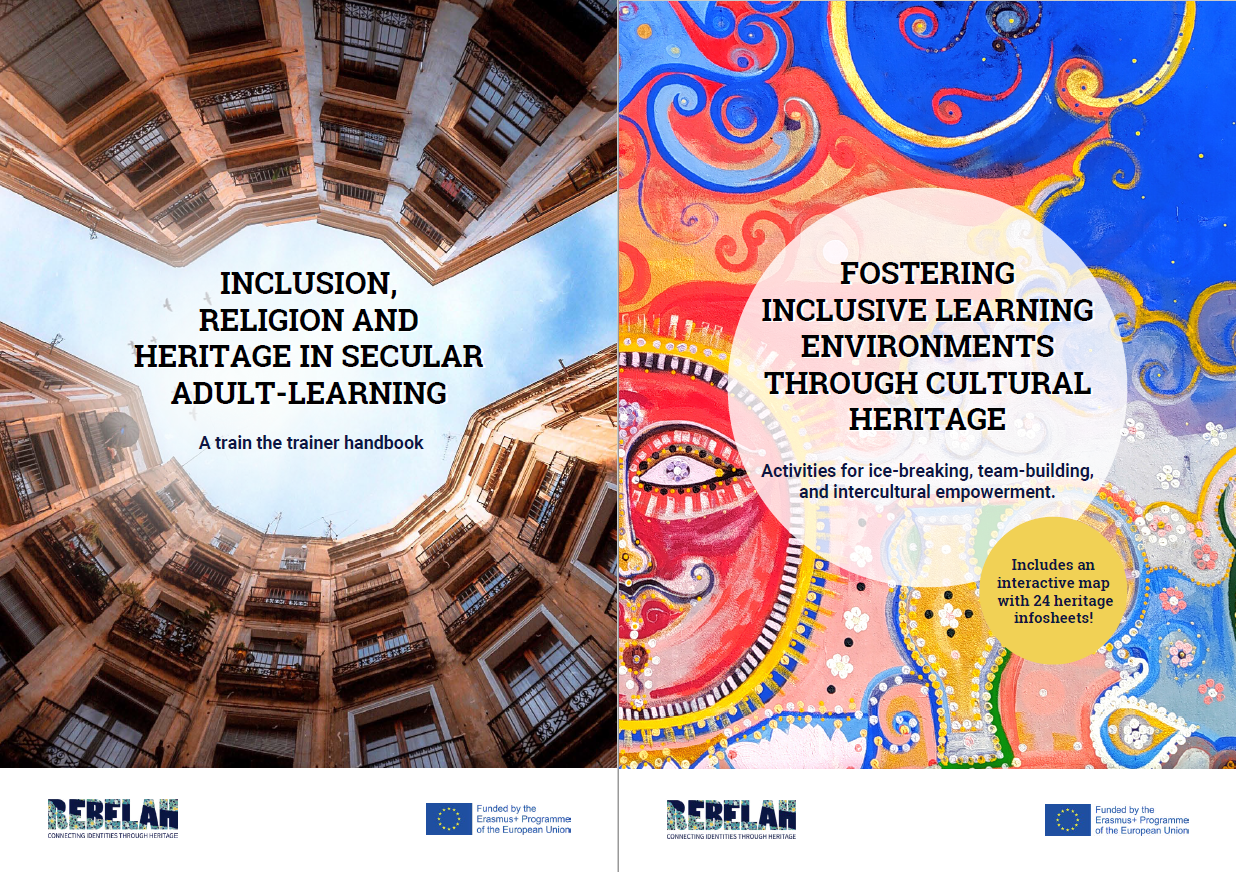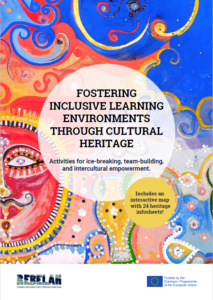
Cultural Heritage is a powerful tool to educate adults on the values of inclusion and tolerance, especially in a diverse society. The two manuals published as a result of the Rebelah project compile a series of icebreakers and team-building activities for a multicultural environment as well as recommendations for adult educators on the use of heritage as a driver for inclusion.
“Inclusion, religion and heritage in secular adult-learning” is intended as a guide for adult educators, especially those working with minorities and very diverse groups, to organise and adapt their activities to the needs of the participants. This trainers’ handbook consists of 13 modules divided into four main sections that explore the interrelationship between cultural heritage and identity, self-awareness, migration, ethnic minorities, art, democracy and many other concepts.
“Fostering inclusive learning environments through cultural heritage” includes 17 suggested activities to reflect on identity through material and immaterial heritage. The handbook also includes some reflections on the exercises carried out in the four participating countries in the Rebelah project and the lessons learnt from them.
The handbooks are available in English, Spanish, French, Dutch and Hungarian.
Fostering inclusive learning environments through cultural heritage
 “A new type of heritage professional is therefore needed. Whereas in the past heritage was in the hands of ‘experts’, the new heritage professional is much more of a mediator, who specialises in helping communities engage in the co-creation of heritage. The new heritage professional, whether a teacher, an artist, a community activist or a museum curator, plays a mediating role in a multi-sided process involving many voices contributing to the ongoing development of heritage in which all can participate. With this handbook we hope to inspire those who work with adult learners to take on this role, to step up to the challenge of helping learners take an active part in the formation of new forms of heritage. ”
“A new type of heritage professional is therefore needed. Whereas in the past heritage was in the hands of ‘experts’, the new heritage professional is much more of a mediator, who specialises in helping communities engage in the co-creation of heritage. The new heritage professional, whether a teacher, an artist, a community activist or a museum curator, plays a mediating role in a multi-sided process involving many voices contributing to the ongoing development of heritage in which all can participate. With this handbook we hope to inspire those who work with adult learners to take on this role, to step up to the challenge of helping learners take an active part in the formation of new forms of heritage. ”
Excerpt from the handbook Fostering inclusive learning environments through cultural heritage
Inclusion, religion and heritage in secular adult-learning
“Heritage is a narrative, first and foremost: an ideological appropriation of a historical site, event, practice, concept, person, object, which recruits it as a summary of a community’s identity as well as an explanation for its current status. Heritage is lived: by retaining rituals such as going through the usual motions of a religious feast, wearing specific clothes at life-events (e.g. black at a funeral) or attending the commemoration of a seminal event in a community’s history. Contrary to what is often supposed, it is not fixed. Instead, practices and narratives evolve through creative processes of meaning making by those claiming a site, event, practice, concept, person, or object as their heritage. Such appropriations also have a dark side to them: if one group claims a certain heritage, others are excluded from it. Therefore, heritage is also deeply political: its narrative defines who can be counted as belonging to our community and who cannot.”
Excerpt from the handbook Inclusion, religion and heritage in secular adult-learning






Follow us: